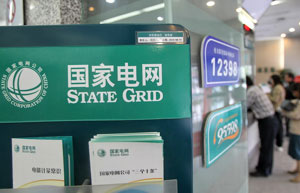SYDNEY -- It has been two weeks since Australian Prime Tony Abbott returned from an economically historic turn around the Asian neighborhood, deftly securing trade pacts with South Korea and Japan. Yet a free trade agreement (FTA) with China, representing an opportunity several orders of magnitude greater than both deals combined, remains - after nine fruitless years - unfulfilled.
But a resolution, according to China's Foreign Ministry, is firmly in Abbott's grasp.
Trade specialists here have been counting the days since China, on the 16th of this month, called on Australia to act fast to facilitate inbound investment for Chinese businesses enthused by the obvious synchronicity between the two major economic partners.
The gravity of Chinese trade to Australia has been apparent throughout the Australian economy for more than a decade - a fact to which the Australian prime minister and long-term rival of former mandarin speaking Australian leader Kevin Rudd - would be keenly attuned.
To soften the blow of any expectations of a free-trade trifecta, Abbott called his meetings with Chinese Premier Li Keqiang as one of deepening friendship - rather than merely cutting a trade deal.
These blurred lines of intent may go down easily enough domestically, where nine years of delay have generated an exhausted ambivalence toward free-trade progress, but certainly not in China where cooperation and long-term collaboration prove the value of partnership.
So China's Foreign Ministry spokeswoman Hua Chunying's terse description of Australia's opaque investment terms at a daily press briefing indicates more than just a bipartisan agreement to "speed things up."
"We expect Australia to create a fairer environment and more convenience for Chinese business investment and operation."
Hua said unequivocally that China-Australia collaboration in trade and investment has to be mutually beneficial.
"We welcome more Australian businesses' investment in China," Hua said, giving the initiative with Mr Abbott to deal with the well-known structural obstacles concerning foreign investment.
Regulatory filters on either side are variously lost in translation, however the Foreign Investment Review Board (FIRB) in Australia now requires in-house stamped approval for investments of any amount from any state-owned enterprises (SOEs) clearly targeted at China's economic frontline.
The move not only provides an additional level of bureaucracy for China's largest investors in Australia, but also empowers a mercantile approach from the Treasurer's office which is more or less beholden to an electorate's mood.
Chinese negotiators have sought both clarification and a higher threshold, seeking exemption for investments under 1 billion Australian dollars.
 |
 |
| AustraliaOKsChina'sState Grid'sinvestment | Top 10 trading partners of the Chinese mainland |
